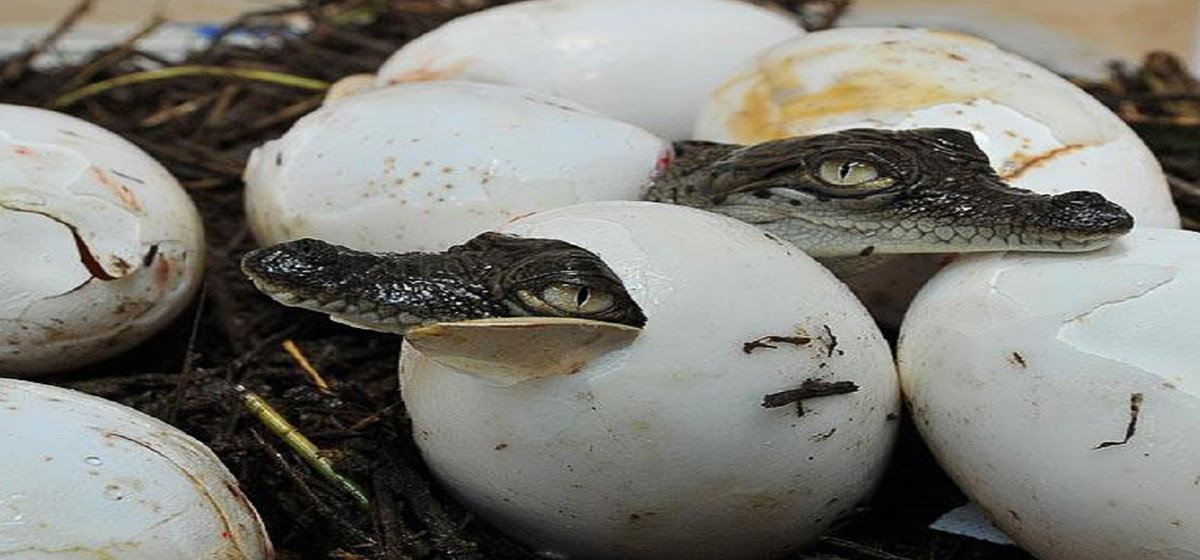CHITWAN, June 19: Crocodile eggs collected from the local Rapti and Narayani rivers have hatched producing 151 hatchlings.
Chitwan National Park had collected 284 eggs from 10 out of the 24 places from the two rivers where the crocodiles had laid eggs. Park assistant conservation officer Ved Bahadur Khadka said 90 hatchlings were hatched from 171 eggs collected from the Rapti river while 61 hatchings emerged from 113 eggs collected from the Narayani river.
Chitwan National Park collects 259 crocodile eggs

He said the crocodiles normally start laying eggs in April and the eggs are hatched after 75 days. The Park has been incubating the eggs collected from the rivers at its crocodile breeding centre at Kasara. Khadka said there are only three male crocodiles in the two rivers which is not adequate for breeding purpose. There are 470 big and small crocodiles at the breeding centre at present. One hundred crocodiles from the centre were released in the Rapti river this year.
The Park has so far released 1,465 hatchlings in various rivers of the country. Seven hundred eighty-five hatchings have been released in the Rapti river alone. According to Khadka, 399 croc hatchings have been released in Narayani river, 35 in Kaligandaki river, 95 in Saptakoshi river, 41 in Karnali river and 110 in Babai river so far. He said although many hatchlings have been released in the rivers, their population has not been found to have increased.
As per the latest census, there are 118 crocodiles in Rapti river and 101 in the Narayani river. Khadka said the growing pollution in the rivers is to be blamed for this.





































